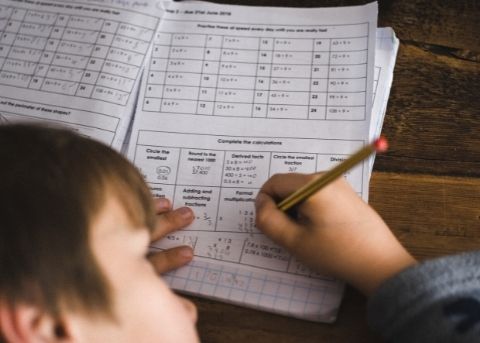 Maths and English. They tend to be considered two opposite sides of a teaching equation. But the truth is, when combined, they make a formidable team in developing students’ understanding of core lessons across the curriculum. Both Maths and English can be used to teach literacy.
Maths and English. They tend to be considered two opposite sides of a teaching equation. But the truth is, when combined, they make a formidable team in developing students’ understanding of core lessons across the curriculum. Both Maths and English can be used to teach literacy.
And, as it turns out, it’s easy to apply.
Literacy is a foundation skill that should be taught across many subjects. Whether a primary or secondary teacher, you can use literacy to teach many elements of both English and Mathematics.
Literacy involves students’ development of skills in interpreting and using language to confidently communicate in various forms, and to be a purposeful participant in society.
Literacy skills are used in myriad ways throughout one’s life, from employment to everyday interactions. And this is how the traditional subjects of Maths and English intertwine so effortlessly.
Being a quantitative mode of learning, Maths requires students to decode questions and form appropriate responses to show an understanding of the concept or problem. Such decoding will require varying degrees of skills in:
- Understanding subject-specific vocabulary.
- Reading presented problems.
- Comprehension of the structure of questions formulated.
While this is not an exhaustive list of literacy skills required to progress mathematics skills, let’s look a little closer at these three aspects of literacy skills building.
1. Maths teaches literacy through subject-specific vocabulary
Vocabulary forms an imperative part of maths learning. How else are students able to transform a question or problem into an explainable answer? Greek and Latin words and symbols are commonly used in maths, still taught to this day. And we apply the origins of the terminology behind those words and symbols to our teaching, which can contribute to a powerful understanding of how maths works. Prime, vector, tangent – they all are easily identified as being rooted in Latin. This etymology of mathematics words serves to provide a more meaningful connection to the question at hand.
Consider the word mathematics on its own. The ancient Greeks used the word máthēma meaning “that which is learnt” or “what one gets to know”. A derivative of the study of philosophy, mathematics became a powerful foundation for much of our understanding of how the world works and remains that way today.
Further, Merriam Webster provides an interesting review of branches and terms used in mathematics from elementary or primary school through high school.
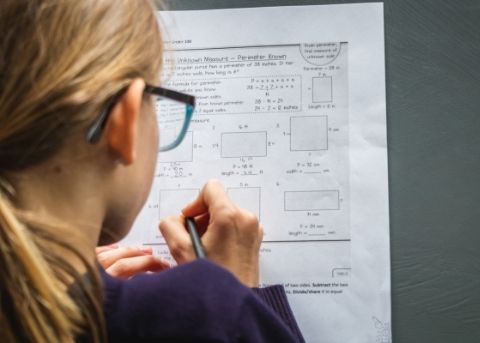
2. Maths teaches literacy through building reading skills
Literacy shares a close relationship with numeracy. Numeracy is the set of skills that is used to solve problems. When educators teach maths principles using real-world context, students apply both literacy skills, in this case, reading skills, and numeracy skills to the resolution of the question or problem.
Quantitative literacy is anchored in real data that reflect engagement with life’s diverse contexts and situations.
Teacher Magazine
This context drives a more engaged learner, eager to continue their learning journey. It is this engagement that inspires students to source more reading material, building their knowledge, vocabulary and literacy skills all at once. It takes a student from saying “where am I going to use this?” to them having the confidence to make more considered decisions in their life.
3. Maths teaches literacy through enhancing comprehension levels
Not only can literacy be used to teach maths concepts, but it also enables students to accelerate their understanding of maths. We spoke with several classroom teachers who all agreed higher levels of literacy directly correlate with higher levels of understanding of other subject material, including maths.
“The biggest issue I see is that students have trouble understanding the questions and directions we give them,” said Lachlan, a Year 6 teacher from Sydney. “To overcome this, we need strategies for improving comprehension and reading skills.”
Secondary Maths teacher Joanne added “The more engaged students are the ones who have developed numeracy and literacy skills through a true understanding of what they’re reading and hearing. Their results generally match their engagement level.”
In further proof of this, an analysis of why students claim to ‘hate maths’, FE News explores how useful maths is in everyday life and identifies that getting to the reasoning behind a formula or method helps students solve problems. This requires the delivery of the content to be thoughtful and appropriately communicated.
LiteracyPlanet teaches literacy across Maths and English
Whether in primary or secondary school settings, English and Maths teachers talk to each other a great deal about how best to convey concepts and to ensure their students can demonstrate their understanding. The combined decades of experience the educators at LiteracyPlanet have gained in this area have helped them understand the type of literacy teaching necessary to develop skills across the curriculum.
LiteracyPlanet is designed to provide the guidance and practice students need to understand the questions asked of them and to then fulfil the requirements of those questions. Each strand of the program arms students with the literacy skills they need to interpret the questions, through building skills in spelling, grammar, sight words and comprehension.
The LiteracyPlanet platform content spans K-10 curricula, even to the most advanced level of questioning. Vocabulary, vital to a mathematics understanding, is thoroughly covered and seamlessly built into the spelling program, providing educators with hours of ready-built activities to assign to their students. Here is an example of a custom-built maths vocabulary word list in LiteracyPlanet that has been used in just two of 21 activities to teach spelling, definitions and context.
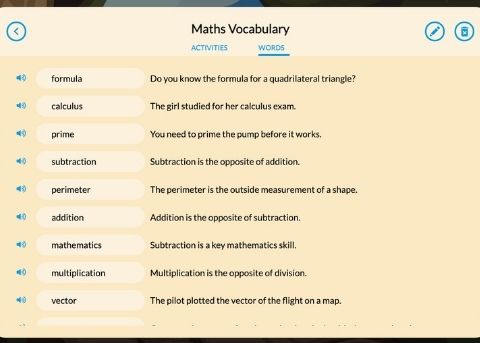
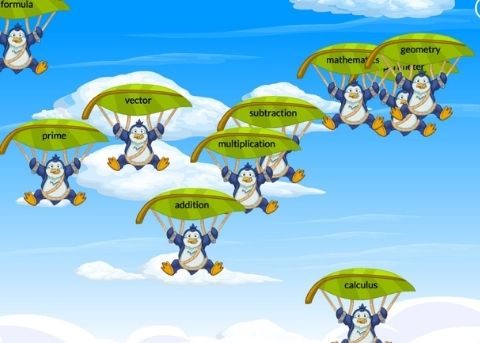
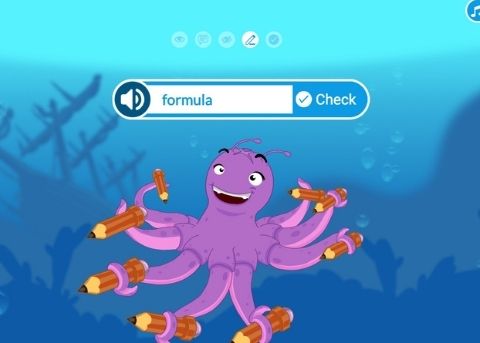
Helpfully, English and Maths teachers can work together by sharing classes, missions and reports in LiteracyPlanet, to teach literacy in both subject areas.





